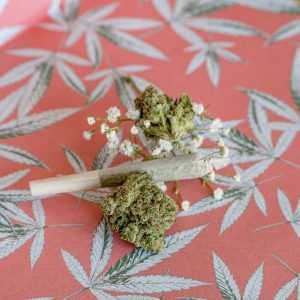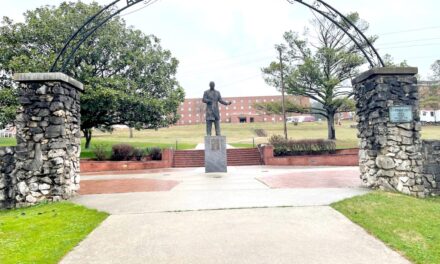By Ashleigh Fields,
Special to the AFRO
Thousands of people across the District recently celebrated 4/20, a day for cannabis enthusiasts on April 20. Professional organizations like the National Cannabis Policy Summit hosted a Congressional forum to discuss policy reform on the unofficial holiday, and the National Association of Black Cannabis Lawyers threw a coffee networking event. The National Cannabis Festival also joined the festivities with a 4.20 mile fun run at Meridian Hill Park.
However, many residents still find themselves asking the question, “Is weed legal in D.C.?” The answer is yes– partially.
Outside of the realms of medical marijuana, individuals over the age of 21 are able to possess two ounces of marijuana or less and use it on private property. Citizens can grow the flower at their primary residence with up to six marijuana plants– no more than three of which are mature.
But when it comes to selling the product, no money, goods or services can be exchanged which leaves dispensaries and their regulation under question. There is a legal limit which states a person can only transfer one ounce of marijuana or less. Due to D.C.’s Initiative 71 (I-71), shop owners must present their weed products as a “gift.” This means the shopper is buying a separate item of the seller’s choice, which can be anything ranging from digital artwork to a shirt or plastic fidget spinner. The customer is then technically not purchasing weed, but receiving it as an additional “gift,” in addition to their other purchase.
Over 70 percent of citizens voted to pass I-71 in 2014 which leaves many patrons concerned about government officials’ desire to overturn the legislation. A coalition of citizens, industry leaders and stakeholders who are committed to passing equitable, fair, and socially conscious cannabis legislation created the I-71 Committee to secure their rights.
They released a statement about their disappointment
last April when Councilmember Phil Mendelson requested emergency legislation to upend recreational cannabis use citing it as “an illegal market sinking a legal market.” If the law passed it would have created fines of $30,000 for shops caught “gifting” marijuana to customers but it failed by one single vote. Mendelson stated this grey area market generates over $500-million-a-year industry in D.C. that cannot be regulated in a council meeting last year.
This was followed by the announcement of a Joint Cannabis Task Force that conducted unannounced inspections of shops to ensure compliance with District agencies including D.C. Health, the Department of Consumer and Regulatory Affairs (DCRA), the District of Columbia Fire and Emergency Medical Services Department (FEMS), and the Office of Tax and Revenue (OTR).
In reference to the emergency act, the I-71 Committee shared a statement that read, “It would peel back the very little protections that I-71 offers to compliant, small businesses and would result in financial struggle for the many employees of these businesses, a huge percentage of whom are Black or people of color.”
“Levying harsh fines against these small businesses endangers the legitimate livelihoods of many DC residents and creates more space in the cannabis economy in D.C. for larger, more corporate operations, not based in D.C., to take over the market,” they continued. “Our businesses are majority Black or Hispanic – we did a demographic survey that shows they make up over 60 percent of our employees. This legislation would leave them without jobs and without financial security.”
A new bill introduced in March Councilmember Phil Mendelson at the request of Mayor Bowser will increase the number of permitted dispensaries in the District and allow returning citizens the ability to take part in the medical marijuana industry. Nonetheless, lawmakers continue to debate the benefits of legalizing marijuana for non-medicinal use.
Earlier this year, the Alcohol and Beverage Regulation Administration was officially renamed the Alcohol Beverage and Cannabis Administration. The board, made up of seven members appointed by the Mayor and confirmed by the D.C. Council for a four year term is responsible for alcohol and medical cannabis licenses, renewals, transfers of ownership or location, suspensions, revocations and the safekeeping of licenses. They also enforce current cannabis laws while working to issue new alcohol and medical marijuana regulations and policies.
Although the future of legal recreational cannabis remains unknown, citizens are continuing to push for what they believe should be protected in local legislation.
The post Is weed legalin D.C.? appeared first on AFRO American Newspapers .










